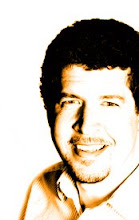"Do you know anyone else I should be talking to?"
End every conversation you have with that one simple question.
The beauty of the question is that not only do you get a name or two to contact, you get a name to use when making contact.
"Hi. Kevin Fullerton said I should talk to you. I'm a writer ..."
People are much more likely to talk to you, and more importantly listen to you, when you've been sent to them by someone they know. They're also more likely to be helpful.
Even if they don't have a job opening, they may know someone who does. In any event, after thanking them for their time, ask:
"Do you know anyone else I should be talking to?"




